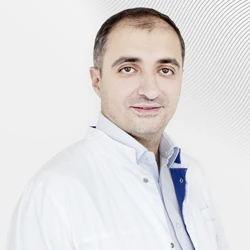Tonsillectomy
Tonsillectomy is a surgical procedure aimed at the complete removal of the palatine tonsils (glands). As a rule, surgery is performed for chronic tonsillitis, when it is impossible to achieve a complete recovery of the patient or improve his quality of life by conservative means. Most often, children have to have their tonsils removed, but there are indications for surgery in adulthood. At the EMC clinic, tonsillectomy is performed by highly qualified surgeons.
What is tonsillectomy
Palatine tonsils are rounded clusters of lymphoid tissue in the pharynx. They are involved in protecting the body from infections from the outside world and are an important part of the immune system. When confronted with an infection, acute inflammation of the tonsils develops — tonsillitis. The disease is usually accompanied by intense symptoms: significant fever, sore throat, intoxication.
Many patients manage to achieve full recovery with high-quality treatment. However, in some cases, the disease often recurs or becomes chronic. In this case, a focus of constant inflammation forms in the body, which worsens the patient's general well-being. Due to the constant inflammatory process, pus continuously accumulates in the tonsils, the lymphoid tissue loosens and is replaced by connective tissue. If conservative treatment does not bring results, the organ ceases to perform a protective function and, on the contrary, adversely affects health. In this case, the tonsils have to be surgically removed. This operation is called a tonsillectomy.
Indications
Surgery involves a risk of complications, so there are strict indications for it. At the EMC clinic, tonsillectomy is performed only after a thorough examination of the patient.
The absolute indications for the operation are:
- Severe hypertrophy of the tonsils, which is accompanied by obstruction of the upper respiratory tract, difficulty swallowing (dysphagia), sleep disorders, and cardiovascular complications.
- Paratonsillar abscess (purulent inflammation of the pericarpal tissue), which cannot be completely eliminated by conservative therapy.
- Tonsillogenic sepsis (chronic intoxication with prolonged tonsillitis).
Surgical removal of the tonsils is also recommended in the following cases:
- Three or more recurrence of angina within a year, despite adequate medical treatment.
- Chronic or recurrent streptococcal tonsillitis, if the administration of beta-lactam antibiotics does not have an effect.
Contraindications
Since surgery is associated with a risk of bleeding, it is not performed in cases of a violation of the blood coagulation system or a high degree of anemia. Other contraindications:
-
severe and decompensated somatic diseases (diabetes, heart failure, kidney failure);
-
infectious and inflammatory processes in the acute phase;
-
pregnancy in the third trimester.
Types of operations
To date, tonsillectomy is performed both by the traditional method (surgical excision) and with the help of high-tech instruments. The procedure is performed under general anesthesia.
- Classic operation (extracapsular removal)- The organ and amygdala capsules are excised with a scalpel.
- Laser removal of tonsils— the tissues are cauterized with a laser with simultaneous coagulation of blood vessels, however, a recurrence is possible.
- Radio wave therapy is the removal of tonsils with the help of a radio knife, which promotes rapid healing, but leaves the risk of recurrence.
- Removal of tonsils with the help of the Da Vinci robot is a modern minimally traumatic method that practically does not cause complications.
Preparation for surgery
In preparation for surgery, examinations are prescribed to assess current health indicators and reduce risks for the patient. Doctors evaluate the results of blood and urine tests, and specialist consultations are scheduled if necessary. The type and method of anesthesia are determined in consultation with an anesthesiologist.
In preparation for the operation, it is necessary to notify the doctor about all medications that are constantly being taken. Some of them that affect blood clotting will need to be discontinued in advance. Before the operation, it will be recommended to refrain from eating during the time specified by the doctor.
The postoperative period
The operation does not involve a long stay in the hospital. A few hours after the procedure, the patient will be able to go home. On the day of the operation, only drinking will be allowed; on subsequent days, you can start taking liquid or mashed food at room temperature. According to the indications, the patient is prescribed antibacterial, analgesic, antipyretic drugs.
The most common postoperative complication is bleeding. 1-8% of patients face it. In most cases, this complication is not dangerous to health, but in rare cases it requires repeated surgical intervention.
Frequently asked questions
What to expect in the first days after the removal of glands?
Nausea or vomiting may occur in the first days after the procedure. Within 1-2 weeks after surgery, most patients report painful sensations in the pharynx, neck, ears, or jaw. In addition, sometimes there is a slight fever, bad breath, swelling of the tongue or pharynx. Young children may have anxiety and sleep disorders.
What happens after the glands are removed?
After tonsillectomy, the immune functions that were previously performed by the palatine tonsils are redistributed to other accumulations of lymphoid tissue, for example, on the root of the tongue and in the nasopharynx. Therefore, if the patient was thoroughly examined before the operation, and the surgery itself went according to plan, the immune system almost does not suffer after the operation. But the operation performed according to the indications makes it possible to eliminate the source of chronic infection in the body, get rid of unpleasant symptoms, and restore the quality of life.
When can I drink after surgery?
The patient is allowed to drink water at room temperature within a few hours after the operation. At the same time, unpleasant and painful sensations are possible, so many patients try to avoid swallowing movements as much as possible, but a sufficient water level is necessary to maintain the water-salt balance of the body. Alcohol and hot drinks are prohibited until complete tissue healing, within 3 weeks after surgery.
Is it possible to get sore throat after tonsillectomy?
Sore throat is acute tonsillitis, that is, inflammation of the palatine tonsils. With complete removal of lymphoid tissue, angina cannot develop. However, pain in the pharynx with acute respiratory viral infections or inflammation of the mucous membrane can also occur with tonsils removed.
Does the voice change after a tonsillectomy?
In most cases, after the removal of pathologically altered tonsils, which become a source of constant inflammation of the tissues of the pharynx and larynx, the quality of the voice changes for the better: nasal, hoarseness, deafness disappear. Changes in the timbre of the voice may appear only at the stage of postoperative recovery or in the case of rare complications.
How long does the wound heal after surgery?
Complete tissue healing is usually completed in 2.5–3 weeks.
Is it possible to have tonsils removed in adulthood?
Just like in children, adult tonsillectomy is performed only for indications and when The operation will have a beneficial effect on the patient's health and improve his quality of life in the future.
At the EMC Clinic, tonsillectomy is performed using state-of-the-art equipment in accordance with international protocols. Postoperative recovery takes place in a comfortable hospital. You can make an appointment for a consultation and ask any questions by phone +7 495 933-66-55.
Make an appointment for a consultation and we will contact you for more details
Why the EMC
The first and only clinic in Russia, created in the image of the world's leading clinics
EMC is a multidisciplinary center offering patients a high level of medical services and a personalized approach
Worldwide recognition and awards
 Learn more
Learn more
Worldwide recognition and awards
 Certificates and licenses
Certificates and licenses

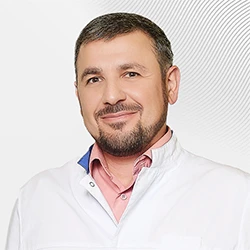



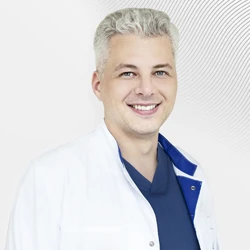

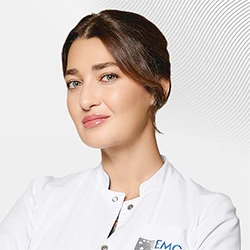
.webp)


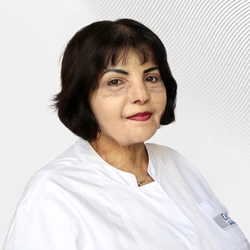
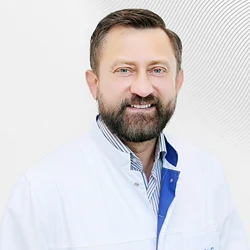
.webp)
